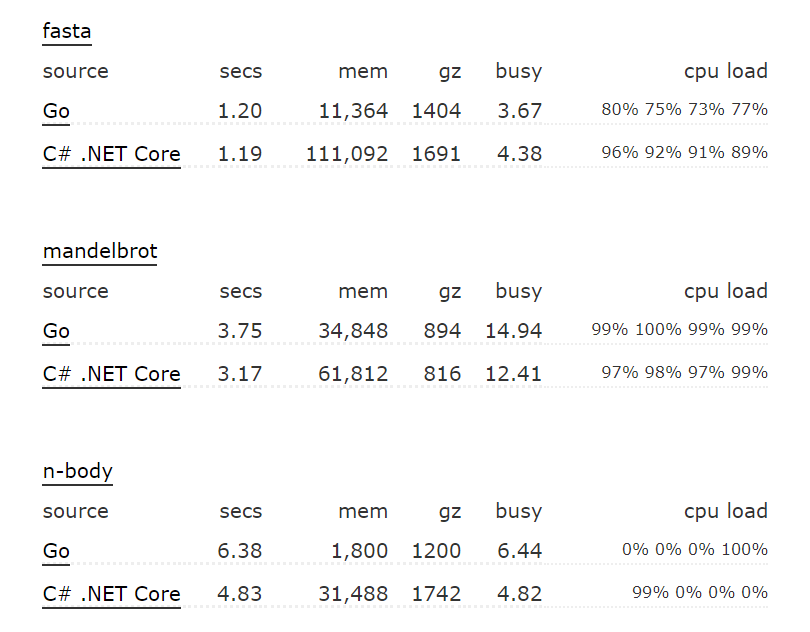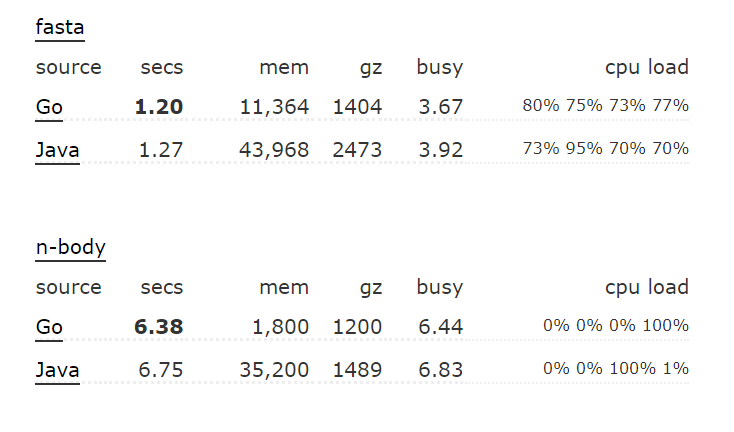After reading @SgtAwesomesauce and @Dynamic_Gravity comments in
and looking at their repo, I decided to look further into golang and was really impressed with the language.
What jumped out at me was that it’s a pass-by-value language that allows the programmer to use pointers and references, as well as create executable binaries. At the same time, it looks like it has a ton of syntactic sugar to make writing golang very efficient.
Basically, it seems like “python for those who know how to program in C/C++.” In other words, there’s a lot of shorthand but follows the paradigms and concepts that C/C++ would use.
This was exciting for me, because I truly like the above listed concepts and I’ve had to “settle” using interpreted languages, where everything is a reference to something in heap memory. It seems like this language is different and has a lot of functionality that I wished all the other new languages had and might be a good fit for me to adopt.
However, it always seems things that seems super awesome also have cruft or painful parts. These are the parts I’m interested in.
Could anyone who uses golang and is familiar with C/C++ please share the pain points they’ve run into with the language?
cotton





